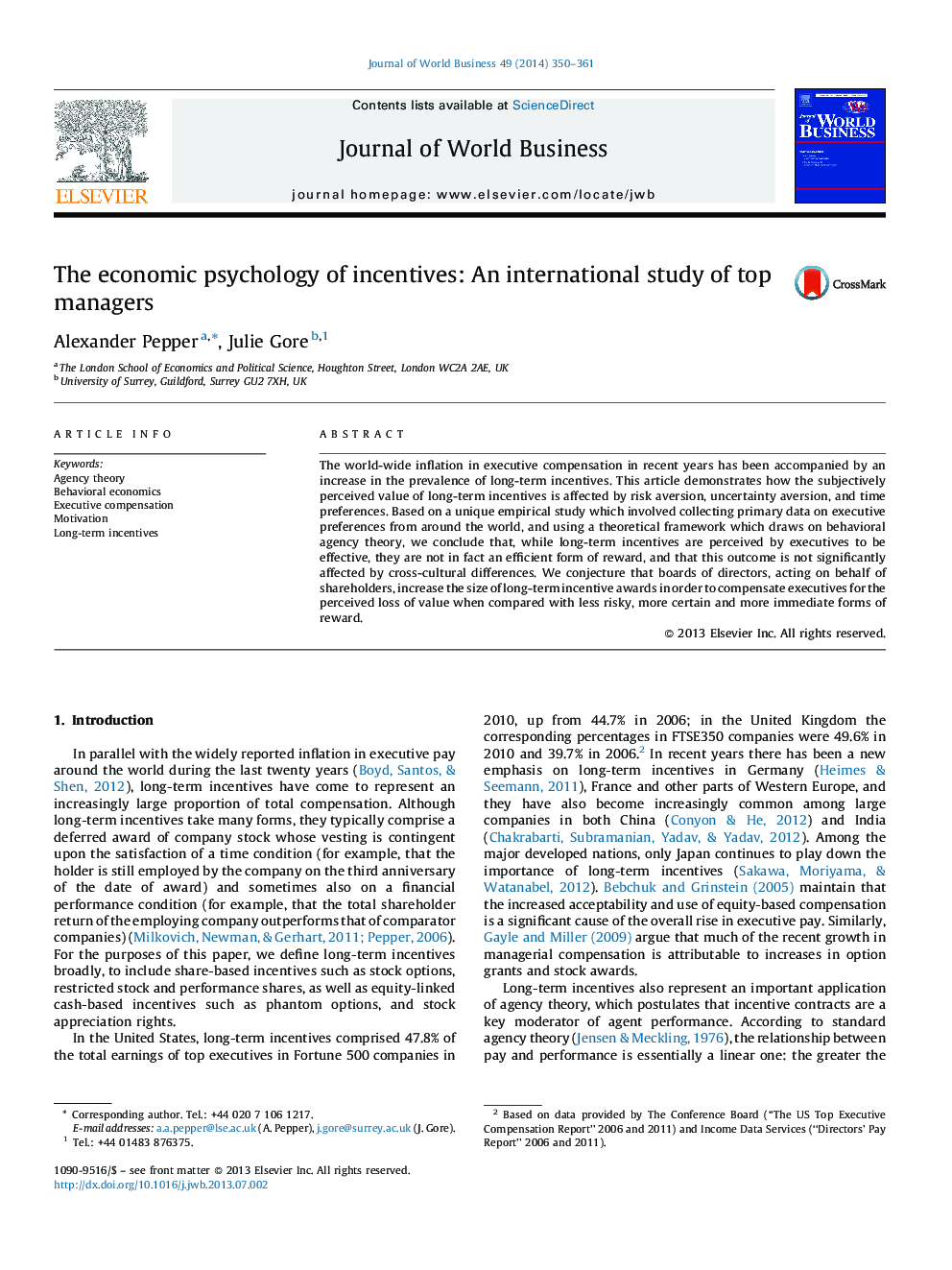| Article ID | Journal | Published Year | Pages | File Type |
|---|---|---|---|---|
| 1002174 | Journal of World Business | 2014 | 12 Pages |
The world-wide inflation in executive compensation in recent years has been accompanied by an increase in the prevalence of long-term incentives. This article demonstrates how the subjectively perceived value of long-term incentives is affected by risk aversion, uncertainty aversion, and time preferences. Based on a unique empirical study which involved collecting primary data on executive preferences from around the world, and using a theoretical framework which draws on behavioral agency theory, we conclude that, while long-term incentives are perceived by executives to be effective, they are not in fact an efficient form of reward, and that this outcome is not significantly affected by cross-cultural differences. We conjecture that boards of directors, acting on behalf of shareholders, increase the size of long-term incentive awards in order to compensate executives for the perceived loss of value when compared with less risky, more certain and more immediate forms of reward.
